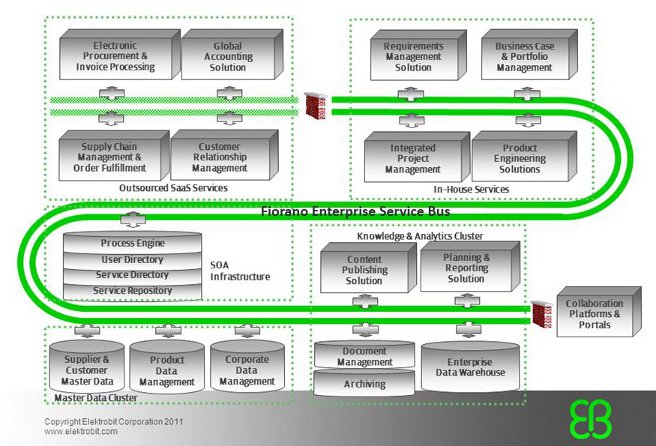
Customer Profile
Elektrobit (www.elektrobit.com), based in Oulu, Finland, is a leading developer of cutting-edge embedded software and hardware technology solutions for the automotive and wireless industries. They are experts in automotive-grade software, wireless technologies, system solutions and software architecture.
The Elektrobit Automotive Business Segment offers an extensive range of standard software products and professional tools that support the whole process of in-car software development. The Elektrobit Wireless Business Segment turns next generation wireless technologies into state of the art products, services and solutions. Its extensive offering covers wireless device development, infrastructure solutions, platform development, R&D services as well as testing tools for measuring, modeling and emulating radio channel environments.
Elektrobit has delivered success, providing solutions for world leaders in the automotive and wireless industry such as Aircell, Audi, Delphi, Ford, FIAT, Penn State University ARL, Realtime Technology, Mettler Toledo and Datame Oy.
Business Problem
Elektrobit is using a server infrastructure based on Windows Server & Linux platforms. In service production they use both in-house developed services as well as third party SaaS-services. They have a large end-user base of about 1500 and counting, accessing their technology across geographies and time-zones.
In 2007, as they were planning a renewal of their financial processes & tools, Elektrobit realized that they required a centralized messaging infrastructure which would unify the existing landscape of disparate applications. The selected accounting tool was a web-based SaaS-service and all financial subsystems were to be integrated with it, hence a web service-capable integration platform was required.
At the inception of the application architecture plan, Elektrobit had established that an Enterprise Service Bus would be the middleware solution of choice . They had decided not to implement one massive ERP-solution, but rather a flexible mesh of applications, where a number of old legacy applications and a selection of new applications would communicate simultaneously through a single integration channel.
Their architectural blue print thus envisaged a framework providing independent connectivity to all tools, enabling change of business processes on-demand, without service breaks. Flexible application architecture was expected to bring savings in shorter implementation and change schedules. An ESB would also make it possible to change tools on the go, without redesigning the whole process again. Reusability would bring crucial benefits for rapid application integration and once developed, solutions could be easily reused in new integration processes.
The primary goal was to find a product which would enable integration of internal finance and HR tools and to return transaction data from the accounting system back to the reporting data warehouse.
They were also looking for the ability to integrate third party web tools with internal systems. Working on a tight schedule, Elektrobit required a flexible and easily scalable environment which would reduce their time to production.
Further, Elektrobit did not have a dedicated middleware developer on their team, and therefore required a platform that was easy to learn and did not require too much training for implementation. They expected highly responsive support from their chosen vendor as well.
Selection Process
As the selection process was kicked-off, Elektrobit went through product demos and visited several major integration solution vendors. After short-listing a set of vendors, they set up a Proof of Concept which required the integration of four different types of applications.
They picked up data schemas, provided sample data files with real data and gave vendors two weeks to implement the POC Scenario. During the POC, Fiorano outperformed others in implementation speed, performance and product support, being the first vendor to provide a working solution. After evaluating the results of the POC stage, Fiorano ESB was selected to be the backbone for messaging and application integration at Elektrobit.
Timo Impiö, Specialist, Global IM explains "Fiorano was confident of its product and backed it up with an efficiently executed POC delivered in time with high quality support during the process. We got all the example integrations done; that experience built trust and gave us confidence in the vendor from a long-term perspective. Meanwhile, some of the other POC participants could not even get the integrations done despite a larger outlay of resources for the POC." He goes on to add "Of course we were wondering what might happen to the support quality after the deal was closed, but to our pleasant surprise found that the support requests are handled efficiently even afterwards."
Elektrobit ESB Architecture
Fiorano delivered sophisticated message transformation logic, customized content filtering and solid web service support with XML compatibility. Being platform independent and consisting of an extensive set of connectivity methods enabling integration out of the box, it was an ideal choice for Elektrobit. To accelerate scalability, Fiorano SOA offered consistent reusability features allowing Elektrobit to use components developed once across new integration flows, so that servers could be quickly added without much rework or performance trade-off.
Benefits
1. Out of the box functionality:Since Elektrobit's environment incorporated several applications, there was a need for several connectivity methods, message transformation, content filtering, xml support and web service support, all of which were provided by the Fiorano ESB. Testing was also a key benefit as automated tests were generated for schemas and data.
2. Flexibility:The Fiorano ESB architecture allows live changes to be made made to running business process without interrupting any of the other services. Independent applications as well as flows were modified on the go without having to re-design the whole process. This not only decreased development time but also allowed automated tests to be generated for schemas and data flows.
3. Reusability:Solutions once developed and tested were easily re-used in new integration process flows. This became a very important benefit for rapid application integration as the efficiency of designing new flows increased linearly. In Fiorano, most of the integration processes were ready to use a few hours after the installation process.
4. Minimal Training and Resources Required:With Fiorano, there was no need for massive training or a large number of senior consultants for application integration. The Fiorano Studio enables a drag-and-drop based approach to building integration flows, hence product training required was minimal. Currently only one experienced developer takes care of over 40 live application integration processes.
5. Fast Time to Production & responsiveness:Even though they were working on tight project schedule, Elektrobit found that Fiorano was very easy to deploy and setup for internal use. It quickly accommodated changes in business logic and adapted the existing process to match these changes efficiently.
6. Product Support:Due to a tight schedule and adoption of a new technology, Elektrobit expected that there would be heavy utilization of product support during the project startup phase and further down the road in the overall integration lifecycle. Elektrobit received extensive and reliable support during implementation and creation of application integration processes.
About Fiorano Software
Founded in 1995, Silicon Valley based Fiorano is a California Corporation with proven leadership in enterprise middleware and peer-to-peer distributed systems. Fiorano's innovative event-driven, dataflow SOA platform integrates applications and complex technologies into an enterprise nervous system, increases business process performance, yields higher message throughput and enhances availability through agent-based visual composition that bridges the capability gap between business models and their implementation - the model is the application, ready to run.
Global leaders including ABN AMRO, Boeing, British Telecom, Chicago Mercantile Exchange Group, McKesson, NASA, POSCO Steel, Qwest Communications, Rabobank, Schlumberger, Lockheed Martin, United States Coast Guard and Vodafone have deployed Fiorano to drive innovation through open, standards-based, dataflow SOA applications built in just days, yielding unprecedented productivity.
Fiorano Enterprise Service Bus (ESB) and Fiorano Message Queue (MQ) deliver the industry fastest, lowest latency, highest throughput real-time messaging (asynchronous and synchronous) to power high performance, highly available, and collaborative workflow applications whose application services are distributed throughout the IT landscape. Fiorano's distributed, peer-to-peer agents' abstract complexity of developing and deploying services to unlock value in a customer's enterprise architecture framework.
To find out more about how Fiorano can help you meet your enterprise integration objectives, visit www.fiorano.com or Email: sales@fiorano.com.

 Japan
Japan Germany
Germany

